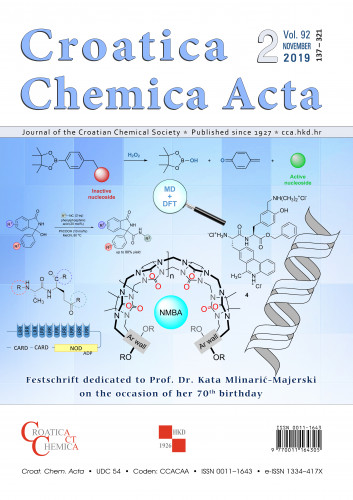Dipeptide 4 containing two unnatural amino acids, a modified tyrosine and a phenanthridine derivative, was synthesized. Binding of the dipeptide to a series of polynucleotides including ct-DNA, poly A - poly U, poly (dAdT)2, poly dG - poly dC and poly (dGdC)2 was investigated by thermal denaturation experiments, fluorescence spectroscopy and circular dichroism. Thermal denaturation experiments indicated that dipeptide 4 at pH 5.0, when phenanthridine is protonated, stabilizes ds-DNA, whereas it destabilizes ds-RNA. At pH 7.0, when the phenanthridine is not protonated, effects of 4 to the polynucleotide melting temperatures are negligible. At pH 5.0, dipeptide 4 stabilized DNA double helices, and the changes in the CD spectra suggest different modes of binding to ds-DNA, most likely the intercalation to poly dG- poly dC and non-specific binding in grooves of other DNA polynucleotides. At variance to ds-DNA, addition of 4 destabilized ds-RNA against thermal denaturation and CD results suggest that addition of 4 probably induced dissociation of ds-RNA into ss-RNA strands due to preferred binding to ss-RNA. Thus, 4 is among very rare small molecules that stabilize ds-DNA but destabilize ds-RNA. However, fluorescence titrations with all polynucleotides at both pH values gave similar binding affinity (log Ka ≈ 5), indicating nonselective binding. Preliminary photochemical experiments suggest that dipeptide 4 reacts in the photochemical reaction, which affects polynucleotides chirality, presumably via quinone methide intermediates that alkylate DNA.
Sažetak

 Croatica chemica acta : 92,2(2019) / editor-in-chief Olga Kronja.
Croatica chemica acta : 92,2(2019) / editor-in-chief Olga Kronja.